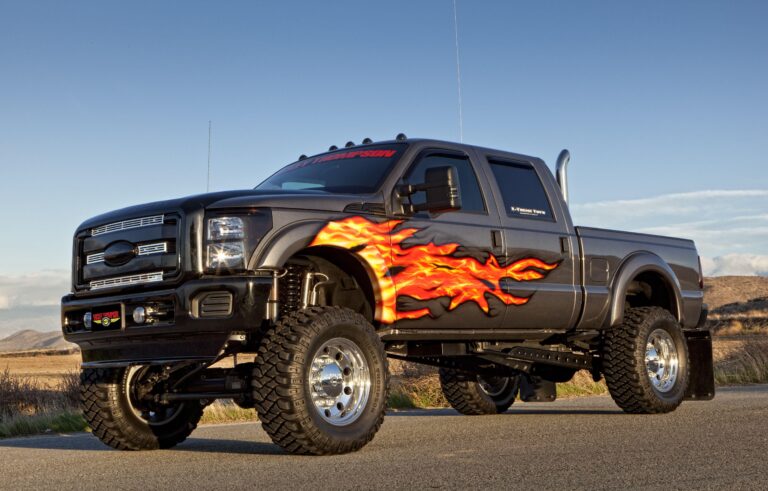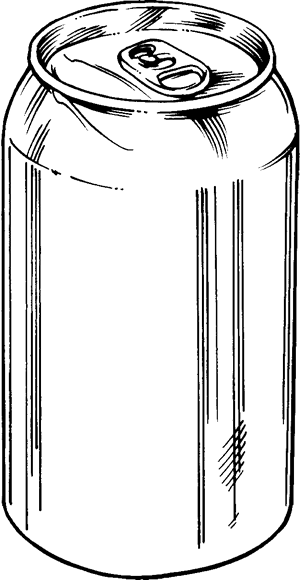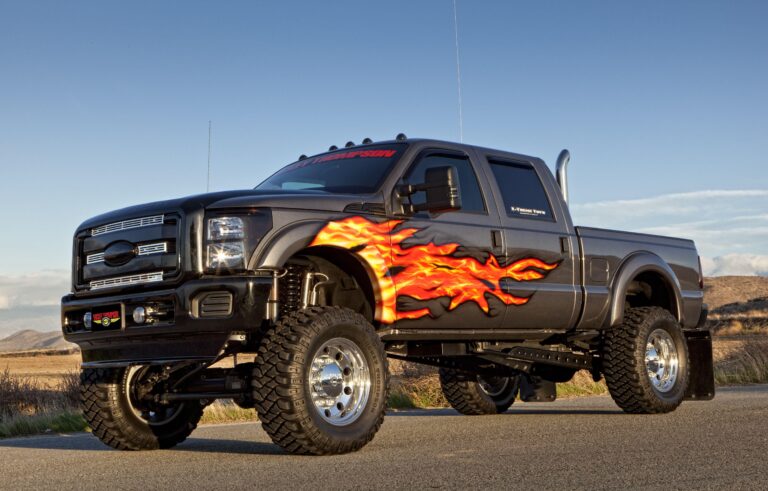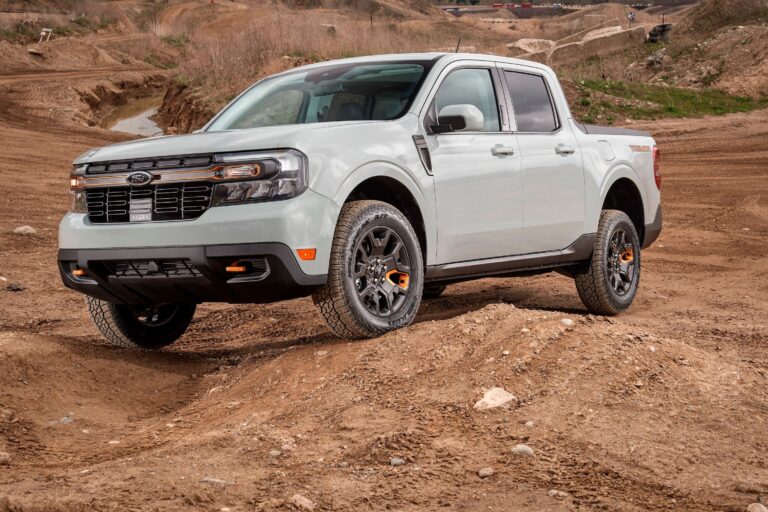Small U-Haul Trailer: Your Comprehensive Guide to Efficient Hauling
Small U-Haul Trailer: Your Comprehensive Guide to Efficient Hauling cars.truckstrend.com
Moving, decluttering, or tackling a DIY project often presents the challenge of transporting items too large for your car’s trunk but not quite big enough to warrant a full-sized moving truck. This is precisely where the small U-Haul trailer shines. Far more than just miniature versions of their larger counterparts, these compact hauling solutions offer an unparalleled blend of convenience, affordability, and versatility for a wide array of personal and commercial needs.
This comprehensive guide will delve into everything you need to know about small U-Haul trailers, from understanding the different types available to mastering safe towing practices and making the most of your rental experience. Whether you’re moving a dorm room, hauling garden waste, or transporting a motorcycle, a small U-Haul trailer could be your perfect partner.
Small U-Haul Trailer: Your Comprehensive Guide to Efficient Hauling
Understanding the "Small" in U-Haul Trailers
When we talk about "small" U-Haul trailers, we’re generally referring to their more compact and easily maneuverable options, designed to be towed by a wider range of personal vehicles. U-Haul offers a few distinct types that fall under this category, each tailored for specific purposes:
-
4×8 Utility Trailer: This is U-Haul’s smallest and most economical open-top trailer. Ideal for light loads, it’s perfect for hauling yard waste, a few pieces of furniture, or small appliances. Its open design makes loading irregularly shaped items straightforward.
- Dimensions (approx.): 8′ long x 4′ wide
- Capacity (approx.): 1,600 lbs payload
- Key Feature: Open top, low sides.


5×8 Cargo Trailer: For those needing protection from the elements or enhanced security, the 5×8 enclosed cargo trailer is an excellent choice. It’s often the go-to for small apartment moves, transporting electronics, or protecting valuable items from dust, rain, or theft.
- Dimensions (approx.): 8′ long x 5′ wide x 5.5′ high (inside)
- Capacity (approx.): 1,800 lbs payload
- Key Feature: Enclosed, lockable, weatherproof.

-
5×9 Utility Trailer with Ramp: A slightly larger utility option, this trailer adds the invaluable feature of a built-in ramp, making it incredibly easy to load wheeled items like motorcycles, ATVs, lawnmowers, or heavy furniture on dollies.
- Dimensions (approx.): 9′ long x 5′ wide
- Capacity (approx.): 1,600 lbs payload
- Key Feature: Integrated ramp for easy loading.
-
Motorcycle Trailer: While typically falling into the "utility" category, U-Haul also offers dedicated motorcycle trailers designed specifically for safe and secure two-wheel transport. These often feature specialized wheel chocks and tie-down points.
- Dimensions (vary, often similar to 5×9 or smaller custom designs)
- Capacity: Designed for 1-2 motorcycles.
- Key Feature: Specialized for motorcycles.
Why Choose a Small U-Haul Trailer? Benefits Galore
Opting for a small U-Haul trailer over a larger truck or trailer offers a multitude of advantages:
- Cost-Effectiveness: Small trailers are significantly cheaper to rent than larger moving trucks or even bigger enclosed trailers. This can translate to substantial savings, especially for local moves or short-term projects.
- Maneuverability: Their compact size makes them far easier to tow, especially for novice drivers. Navigating city streets, tight turns, and parking lots becomes less daunting. Backing up is also less challenging compared to a full-sized truck.
- Fuel Efficiency: A smaller, lighter trailer creates less drag on your towing vehicle, leading to better gas mileage compared to towing a heavy, large trailer or driving a large, less fuel-efficient moving truck.
- Versatility: From furniture and appliances to garden debris, construction materials, sports equipment, or even just clearing out a garage, these trailers handle a surprising variety of loads.
- Accessibility: U-Haul locations are ubiquitous, meaning you can often find a small trailer available for rent close to your home or destination, even last minute.
- Vehicle Compatibility: Small trailers require less powerful towing vehicles, making them accessible to a broader range of SUVs, trucks, and even some sedans, provided they meet the basic towing requirements.
Preparing for Your Small Trailer Rental: What You Need to Know
Before you hitch up and go, a little preparation goes a long way in ensuring a smooth and safe experience.
-
Towing Vehicle Requirements:
- Hitch: Your vehicle must have a properly installed receiver hitch. The specific ball size needed for U-Haul’s small trailers is typically 1-7/8" or 2". U-Haul can often install hitches and wiring if your vehicle isn’t equipped.
- Wiring: A functional 4-pin flat electrical connector is essential for trailer lights (turn signals, brake lights, running lights).
- Towing Capacity: Crucially, your vehicle’s towing capacity must exceed the gross weight of the loaded trailer. Consult your vehicle’s owner’s manual. U-Haul’s reservation system will also guide you based on your vehicle’s make and model.
- Mirrors: Ensure your side mirrors provide an adequate view of the trailer and surrounding traffic.
-
Driver Requirements: You typically need a valid driver’s license and be at least 18 years old (16 for some states for specific trailer types, but 18 is standard for cargo/utility).
-
Booking Process:
- Online/App: The easiest way to reserve is through U-Haul’s website or mobile app. You can select your pickup and drop-off locations, dates, and the specific trailer type.
- In-Person/Phone: You can also call or visit a U-Haul center.
- Reservations: While small trailers are often readily available, reserving in advance, especially during peak seasons (holidays, end of month, summer), is highly recommended.
-
Pickup and Drop-off:
- Inspection: Before leaving, inspect the trailer for any existing damage, tire condition, and ensure all lights are working. Report any issues to the U-Haul representative.
- Hook-Up: U-Haul staff will assist you in properly hitching the trailer, connecting the safety chains, and plugging in the electrical connector. Pay attention to how they do it so you can re-check later.
- Safety Check: Do a quick walk-around yourself. Check tire pressure, ensure the hitch latch is secure, safety chains are crossed under the hitch, and lights function (brake, turn signals, running lights).
Loading and Towing Your Small U-Haul Trailer Safely
Safety is paramount when towing any trailer, regardless of size.
-
Weight Distribution: This is the most critical aspect of safe trailer towing.
- Tongue Weight: Approximately 60% of the total cargo weight should be loaded into the front half of the trailer (closest to your vehicle). This creates adequate "tongue weight" (the downward force on your hitch ball), which should be 10-15% of the total loaded trailer weight.
- Balance: Distribute heavy items evenly side-to-side.
- Consequences of Poor Distribution: Too little tongue weight can lead to dangerous trailer sway, while too much can overload your vehicle’s rear axle and affect steering.
-
Securing Your Load:
- Tie-Downs: Use strong ropes, ratcheting straps, or cargo nets to secure all items, preventing them from shifting during transit. Even small items can become dangerous projectiles.
- Padding: Use moving blankets or furniture pads to protect items from rubbing and damage.
- Closed Trailers: For enclosed trailers, pack tightly from front to back and side to side, minimizing empty spaces.
-
Pre-Departure Checklist (Every Time):
- Hitch connection secure?
- Safety chains crossed and attached?
- Electrical connector fully seated and lights working?
- Tires inflated to recommended pressure (trailer and tow vehicle)?
- Load balanced and secured?
- Side mirrors adjusted?
-
Driving Tips:
- Slower Speeds: Always drive below the posted speed limit, especially on highways, and be extra cautious in adverse weather.
- Increased Braking Distance: Your stopping distance will be significantly longer. Allow ample space between your vehicle and others.
- Wider Turns: Trailers cut corners. Make wider turns at intersections and around obstacles to avoid hitting curbs or other vehicles.
- Lane Changes: Check your blind spots thoroughly and signal well in advance.
- Backing Up: This takes practice. Make small steering corrections, use your mirrors, and don’t be afraid to get out and look. It’s often easier to have a spotter.
- Hills: Downshift on inclines and declines to use engine braking and reduce strain on your brakes.
Common Uses for Small U-Haul Trailers
The versatility of small U-Haul trailers makes them invaluable for numerous tasks:
- Small Residential Moves: Perfect for moving a studio apartment, dorm room, or just a few pieces of furniture from one house to another.
- Decluttering and Disposal: Hauling old furniture, appliances, or accumulated junk to the dump or a donation center.
- Landscaping and Yard Work: Transporting bags of mulch, soil, rocks, plants, or removing tree branches and garden debris.
- Home Improvement Projects: Picking up lumber, drywall, flooring, large appliances, or power tools from hardware stores.
- Transporting Recreational Vehicles: The 5×9 utility trailer with a ramp is ideal for ATVs, dirt bikes, or even a small golf cart. Dedicated motorcycle trailers handle bikes with ease.
- Event or Business Needs: Moving display materials for a craft fair, supplies for a catering event, or tools for a small contractor.
Potential Challenges and Solutions
While generally straightforward, keep an eye out for these potential issues:
- Overloading: Never exceed the trailer’s or your vehicle’s maximum payload capacity. This is extremely dangerous. Always err on the side of caution.
- Improper Loading: As discussed, incorrect weight distribution can lead to trailer sway, loss of control, and accidents. Re-distribute the load if you feel instability.
- Towing Vehicle Limitations: Ensure your vehicle is genuinely capable of towing the specific trailer and its intended load. Don’t guess.
- Availability: During peak moving seasons, popular small trailers can be scarce. Book well in advance.
- Understanding Insurance: Your personal auto insurance might not cover trailer damage or liability while towing a rental. U-Haul offers supplementary coverage like Safemove® and Safetow® which can provide peace of mind. Review these options carefully.
Small U-Haul Trailer Estimated Daily Rental Prices
Please note that U-Haul rental prices are dynamic and vary significantly based on location, availability, demand, and whether it’s a one-way or in-town rental. The prices below are estimates for in-town daily rentals and should only be used as a general guide. Always check the U-Haul website or app for the most accurate pricing for your specific needs.
| Trailer Type | Approximate Dimensions (L x W) | Payload Capacity (Approx.) | Key Features | Estimated Daily Price Range (In-Town) |
|---|---|---|---|---|
| 4×8 Utility Trailer | 8 ft x 4 ft | 1,600 lbs | Open top, low sides | $14.95 – $19.95 |
| 5×8 Cargo Trailer | 8 ft x 5 ft (interior height 5.5 ft) | 1,800 lbs | Enclosed, lockable, weatherproof | $29.95 – $39.95 |
| 5×9 Utility Trailer w/ Ramp | 9 ft x 5 ft | 1,600 lbs | Open top, integrated loading ramp | $24.95 – $34.95 |
| Motorcycle Trailer | Varies (often compact) | 1-2 motorcycles | Specialized wheel chocks | $24.95 – $39.95 |
Note: One-way rentals are generally more expensive than in-town rentals. Additional fees for hitches, wiring, or insurance may apply.
Frequently Asked Questions (FAQ)
Q1: Can I tow a U-Haul trailer with my sedan?
A1: It depends on your sedan’s specific towing capacity. Many smaller U-Haul trailers can be towed by sedans, but you must check your vehicle’s owner’s manual for its maximum towing limit and ensure you have a proper hitch and wiring.
Q2: Do I need special insurance to rent a U-Haul trailer?
A2: Your personal auto insurance policy may or may not cover rental trailers. It’s crucial to check with your insurance provider. U-Haul offers optional coverage plans like Safetow® that can provide additional protection for the trailer and your liability.
Q3: What kind of hitch do I need?
A3: You’ll need a receiver hitch installed on your vehicle. Small U-Haul trailers typically use a 1-7/8" or 2" hitch ball. U-Haul can often install hitches and wiring if your vehicle isn’t equipped.
Q4: Are U-Haul trailers equipped with brakes?
A4: Most small U-Haul utility and cargo trailers do not have their own braking systems. Braking is handled entirely by your towing vehicle. Larger U-Haul trailers (like car haulers or larger cargo trailers) often do have surge brakes.
Q5: How do I check trailer availability?
A5: The best way is to use the U-Haul website or mobile app. You can enter your desired pickup location, dates, and trailer type to see what’s available.
Q6: Can I rent a small U-Haul trailer one-way?
A6: Yes, U-Haul offers one-way rentals for most of their equipment, including small trailers. Be aware that one-way rentals are generally more expensive than in-town rentals due to logistical costs.
Conclusion
Small U-Haul trailers are an invaluable resource for anyone needing to transport items efficiently and affordably without the commitment or cost of a larger moving truck. By understanding the different types available, preparing your towing vehicle, mastering safe loading and towing practices, and being aware of potential challenges, you can harness the full potential of these compact powerhouses. With careful planning and adherence to safety guidelines, your small U-Haul trailer rental will empower you to tackle your hauling tasks with confidence and ease, making your next project or move a smooth success.






